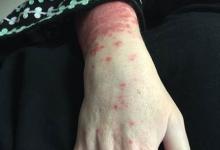NIH Consensus Guidelines for the Treatment of COVID-19 Save

A National Institutes of Health (NIH) expert panel has developed consensus treatment guidelines for the management of coronavirus (COVID-19). To date no drug has been proven to be safe and effective for treating COVID-19. Moreover, they found no evidence to recommended the use of hydroxychloroquine for prophylaxis or treatment of COVID-19 outside of a current clinical trial.
The panel included 34 physicians and pharmacologists, representing clinical practice, academia, NIH, and pediatrics. Their recommendations are based on preliminary data and the expertise of the panelists.
Overall the standout recommendations included:
- The COVID-19 Treatment Guidelines Panel (the Panel) does not recommend the use of any agents for pre-exposure prophylaxis (PrEP) against severe acute respiratory syndrome coronavirus 2 (SARS-CoV-2) outside of the setting of a clinical trial (AIII).
- The Panel does not recommend the use of any agents for post-exposure prophylaxis (PEP) against SARS-CoV-2 infection outside of the setting of a clinical trial (AIII).
- The Panel recommends no additional laboratory testing and no specific treatment for persons with suspected or confirmed asymptomatic or presymptomatic SARS-CoV-2 infection (AIII).
- At present, no drug has been proven to be safe and effective for treating COVID-19. There are insufficient data to recommend either for or against the use of any antiviral or immunomodulatory therapy in patients with COVID-19 who have mild, moderate, severe, or critical illness (AIII).
They reinforced the findings showing that the elderly and those domiciled in nursing homes or long-term care facilities are at greatest risk for fatal outcomes and that other risk factors for COVID disease include
- Hypertension
- Cardiovascular disease
- Diabetes
- Chronic respiratory disease
- Cancer
- Renal disease
- Obesity
There is no evidence to support pre-exposure prophylaxis (PrEP), outside the setting of a clinical trial, to prevent SARS-CoV-2 infection. Clinical trials using hydroxychloroquine, chloroquine, or HIV protease inhibitors as PrEP are in development or underway.
Current treatment recommendations depend on the stage of infection.
Asymptomatic or Presymptomatic Infection
- Persons who test positive for SARS-CoV-2 and who are asymptomatic should self-isolate. If they remain asymptomatic, they can discontinue isolation 7 days after the date of their first positive SARS-CoV-2 test.
- No additional laboratory testing and no specific treatment for persons with suspected or confirmed asymptomatic or presymptomatic SARS-CoV-2 infection.
Mild Illness
- Most mildly ill patients can be managed in an ambulatory setting or at home through telemedicine or remote visits.
- Such patients with symptomatic COVID-19 and risk factors for severe disease should be closely monitored as their clinical course may rapidly progress.
- No specific laboratory evaluations are indicated
- No sufficient data to recommend either for or against any antiviral or immunomodulatory therapy in patients with COVID-19 with mild illness.
Moderate Illness
- Moderate COVID-19 illness is defined as evidence of lower respiratory disease (clinical or imaging) with SpO2 >93% on room air at sea level.
- Moderate illness should be admitted to a health care facility for close observation
- Hospital infection prevention and control measures, use of personal protective equipment (PPE) for droplet and contact precautions; treatment by as few clinicians as possible
- Assessment by chest x-ray, ultrasound, or if indicated, CT. Labs should include CBC, CMP, C-reactive protein (CRP), D-dimer, and ferritin
- There are insufficient data for the Panel to recommend either for or against any antiviral or immunomodulatory therapy in patients with COVID-19 with moderate illness (but treatments offered as part of a clinical trial would be prudent).
Severe Illness
- Severe illness is defned as SpO2 ≤93% on room air at sea level, respiratory rate >30, PaO2/FiO2 <300, or lung infiltrates >50%. These patients may experience rapid clinical deterioration and will likely need to undergo aerosol-generating procedures.
- Assessment by chest x-ray, ultrasound, or if indicated, CT. Labs should include CBC, CMP, C-reactive protein (CRP), D-dimer, and ferritin
- There are insufficient data for the Panel to recommend either for or against any antiviral or immunomodulatory therapy in patients with COVID-19 with Severe illness (but treatments offered as part of a clinical trial would be prudent).
Critical Illness
- COVID-19 is primarily a pulmonary disease. Severe cases may be associated with acute respiratory distress syndrome (ARDS), septic shock that may represent virus-induced distributive shock, cardiac dysfunction, elevations in multiple inflammatory cytokines that provoke a cytokine storm, and/or exacerbation of underlying co-morbidities.
- Critical patients with COVID-19 may also experience cardiac, hepatic, renal, and central nervous system disease.
- Successful clinical management of a patient with COVID-19 depends on attention to the primary process leading to the ICU admission, but also to other comorbidities and nosocomial complications.
- There are insufficient data for the Panel to recommend either for or against any antiviral or immunomodulatory therapy in critically ill patients with COVID-19 (AIII).
Management of Concomitant Medications in Patients with COVID-19
Corticosteroids
- The Panel recommends against the use of systemic corticosteroids in mechanically ventilated patients without acute respiratory distress syndrome (ARDS). For those with ARDS, they cannot recommend for or against the use of systemic corticosteroids. Those in shock, they recommend low-dose corticosteroid therapy (i.e., shock reversal) over no corticosteroids.
- In non-critically ill patients with COVID-19, they are against the routine use of systemic corticosteroids for the treatment of COVID-19.
- For Patients on Chronic Corticosteroids: those on chronic oral corticosteroid therapy a chronic underlying condition should not discontinue their steroids. Inhaled corticosteroids for asthma and chronic obstructive pulmonary disease should be continued.
HMG-CoA Reductase Inhibitors (Statins)
- Persons on prescribed statin therapy should continue these medications
Nonsteroidal Anti-Inflammatory Drugs (NSAIDs)
- Persons with COVID-19 who are taking NSAIDs for a co-morbid condition should continue therapy as previously directed by their physician. There is no difference in the use of antipyretic strategies (e.g., with acetaminophen or NSAIDs) between patients with or without COVID-19
Angiotensin-Converting Enzyme Inhibitors and Angiotensin Receptor Blockers
- Persons taking angiotensin-converting enzyme (ACE) inhibitors or angiotensin receptor blockers (ARBs) for cardiovascular disease (or other indications) should continue these medications.
- Angiotensin-converting enzyme 2 (ACE2) is the cell surface receptor for severe acute respiratory syndrome coronavirus 2 (SARS-CoV-2). It has been hypothesized1 that the modulation of ACE2 associated with these therapies could suppress or enhance SARS-CoV-2 replication. Investigations of the role of ARBs and recombinant human ACE2 in treatment and prevention of SARS-CoV-2 infection are underway.
- It is unclear if use of these medications are helpful, harmful, or neutral in the pathogenesis of SARS-CoV-2 infection.










If you are a health practitioner, you may Login/Register to comment.
Due to the nature of these comment forums, only health practitioners are allowed to comment at this time.